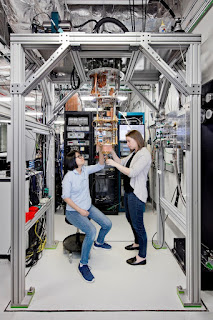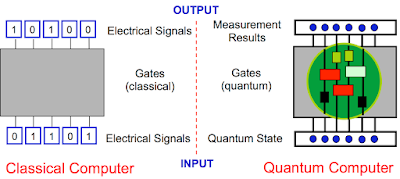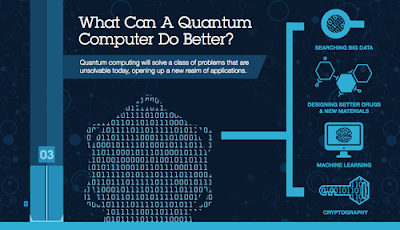Twitter Feed
CloudCamp Federal @ FOSE
Sign up now CloudCamp Federal @ FOSE, March 10,2009, 3pm – 8:30pm at the Walter E. Washington Convention Center, 801 Mount Vernon Place NW , Washington, DC. As a follow-up…
Thank You NVTC “Cool Tech” and TechBISNOW !!
Thank you to Dede Haas, Chris D’Errico and the Northern Virginia Technology Council for the opportunity to speak at yesterday’s NVTC “Cool Tech” Committee meeting! The Agilex facilities were awesome…
A Significant Event in Cloud Interoperability
On Jan 20th, GoGrid released it’s API specification under a Creative Commons license. “The Creative Commons Attribution Share Alike 3.0 license, under which the GoGrid cloudcenter API now falls, allows…
Booz|Allen|Hamilton & Dataline Sponsor 2nd Government Cloud Computing Survey
Dataline, Booz|Allen|Hamilton and the Government Cloud Computing Community have teamed together to sponsor the 2nd Government Cloud Computing Survey. Cloud Computing has come a long way since the first survey six months…
Gartner Lays Out 7-year Plan for Cloud Computing
According to Gartner’s new report, cloud computing will go through three phases over seven years before it will mature as an industry; – Phase 1: 2007 to 2011 — Pioneers…
Cloud Interoperability Magazine Launches
My congratulations goes out today to Reuven Cohen on the launch of Cloud Interoperability Magazine. The site will focus on Cloud Computing, standardization efforts, emerging technologies, and infrastructure API’s. As the new…
Why Can’t We Eliminate the “Technology Refresh” RFP?
In order to maintain life cycle and technology, the Navy is upgrading server farms at fifteen (15) sites and any future sites throughout the Far East, Europe and Middle East…
Cloud & the Government Session at Cloud Computing Expo
Earlier this week I announced that I will be presenting at SYS-CON’s 2nd International Cloud Computing Conference & Expo in New York City this coming March 30-April 1, 2009. During…
CSC and Terremark target US Government with Cloud Computing
Today’s announcement by CSC reinforced the strong wave of cloud computing towards the Federal space. Ranked by Washington Technology Magazine as 9th largest (by contract dollar value) government contractor, this…
Should my agency consider using cloud computing?
This is clearly the question on the minds and lips of every government IT decsionmaker in town. Why should a government agency even consider cloud computing? In reality, the decision…
- The release of a new API (Application Program Interface) for the IBM Quantum Experience that enables developers and programmers to begin building interfaces between its existing five quantum bit (qubit) cloud-based quantum computer and classical computers, without needing a deep background in quantum physics.
- The release of an upgraded simulator on the IBM Quantum Experience that can model circuits with up to 20 qubits. In the first half of 2017, IBM plans to release a full SDK (Software Development Kit) on the IBM Quantum Experience for users to build simple quantum applications and software programs.
The IBM Quantum Experience enables anyone to connect to IBM’s quantum processor via the IBM Cloud, to run algorithms and experiments, work with the individual quantum bits, and explore tutorials and simulations around what might be possible with quantum computing. Since its launch less than a year ago, about 40,000 users have run over 275,000 experiments on the IBM Quantum Experience. It has become an enablement tool for scientists in over 100 countries and, to date, 15 third-party research papers have been posted to arXiv with five published in leading journals based on experiments run on the Quantum Experience.
 The broad availability of quantum computing capability could prove to be a significant blow to current data encryption practices. In 2015 the US National Security Agency actually advised US agencies and businesses to prepare for a time when the cryptography protecting virtually all e-mail, medical and financial records, and online transactions would be rendered obsolete by quantum computing. The US National Institute for Standards and Technology (NIST) is also running a competition to spur work on post-quantum algorithms.
The broad availability of quantum computing capability could prove to be a significant blow to current data encryption practices. In 2015 the US National Security Agency actually advised US agencies and businesses to prepare for a time when the cryptography protecting virtually all e-mail, medical and financial records, and online transactions would be rendered obsolete by quantum computing. The US National Institute for Standards and Technology (NIST) is also running a competition to spur work on post-quantum algorithms. - Drug and Materials Discovery: Untangling the complexity of molecular and chemical interactions leading to the discovery of new medicines and materials;
- Supply Chain & Logistics: Finding the optimal path across global systems of systems for ultra-efficient logistics and supply chains, such as optimizing fleet operations for deliveries during the holiday season;
- Financial Services: Finding new ways to model financial data and isolating key global risk factors to make better investments;
- Artificial Intelligence: Making facets of artificial intelligence such as machine learning much more powerful when data sets can be too big such as searching images or video; or
- Cloud Security: Making cloud computing more secure by using the laws of quantum physics to enhance private data safety.
This content is being syndicated through multiple channels. The opinions expressed are solely those of the author and do not represent the views of GovCloud Network, GovCloud Network Partners or any other corporation or organization.
( Thank you. If you enjoyed this article, get free updates by email or RSS – © Copyright Kevin L. Jackson 2017)
Cloud Computing
- CPUcoin Expands CPU/GPU Power Sharing with Cudo Ventures Enterprise Network Partnership
- CPUcoin Expands CPU/GPU Power Sharing with Cudo Ventures Enterprise Network Partnership
- Route1 Announces Q2 2019 Financial Results
- CPUcoin Expands CPU/GPU Power Sharing with Cudo Ventures Enterprise Network Partnership
- ChannelAdvisor to Present at the D.A. Davidson 18th Annual Technology Conference
Cybersecurity
- Route1 Announces Q2 2019 Financial Results
- FIRST US BANCSHARES, INC. DECLARES CASH DIVIDEND
- Business Continuity Management Planning Solution Market is Expected to Grow ~ US$ 1.6 Bn by the end of 2029 - PMR
- Atos delivers Quantum-Learning-as-a-Service to Xofia to enable artificial intelligence solutions
- New Ares IoT Botnet discovered on Android OS based Set-Top Boxes




